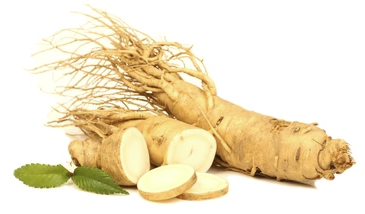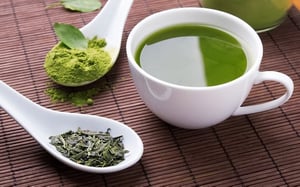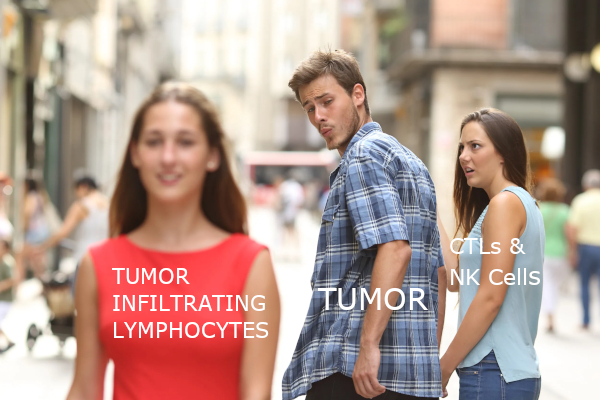 When I was growing up in Hong Kong, and even after I came to the United States, my parents and grandparents would periodically give me ginseng beverages and soups, which was not always pleasant due to the bitter taste. As a result, I don’t think I really appreciated the benefits of ginseng, both scientifically confirmed and perceived. It is fun and informative to read about the myriad studies of natural plant extracts and how they can improve our well-being. Many folks like to drink herbal teas or use plant-derived supplements such as aloe vera lotions, so maybe this is good incentive to grow more of these beneficial plants such that they can provide health products as well as some clean oxygen for us to breathe!
When I was growing up in Hong Kong, and even after I came to the United States, my parents and grandparents would periodically give me ginseng beverages and soups, which was not always pleasant due to the bitter taste. As a result, I don’t think I really appreciated the benefits of ginseng, both scientifically confirmed and perceived. It is fun and informative to read about the myriad studies of natural plant extracts and how they can improve our well-being. Many folks like to drink herbal teas or use plant-derived supplements such as aloe vera lotions, so maybe this is good incentive to grow more of these beneficial plants such that they can provide health products as well as some clean oxygen for us to breathe!
The Benefits of Natural Medicine
People are understandably nervous putting anything into their bodies that they don’t trust, but it seems many folks at least trust that if it grows in the ground, for the most part, it is probably okay. Such is the idea behind homeopathic remedies, which use moderated amounts of natural substances from plants and earthly minerals to stimulate the healing process. Of course, WebMD and your primary care provider would likely tell you not to use these for cancer or a heart attack, so at least some understanding of the underlying mechanism of natural healing would make these remedies more acceptable to medical professionals.
Let’s take the ginseng from my youth as an example. The specific ginseng that my family made me stomach is associated with memory and thinking skills and might be useful even for Alzheimer’s patients. I remember snapping to attention after drinking the ginseng beverages, but I always assumed it was because it tasted so bad! However, there are multiple studies that show the antioxidant and anti-inflammatory properties of the specific Panax ginseng, including a study of liver injury in rats that modeled post-menopausal estrogen-deficient females. 1
 Other examples include the molecule epigallocatechin gallate (EGCG), which is one of the potent ingredients in green tea. EGCG has been known to cause apoptosis in cancer cells, and I recall the postdoc in my graduate lab working on elucidating the mechanism of EGCG in proteomic studies. A biochemical interaction study showed that EGCG binds the tumor suppressor p53, and this interaction prevents p53’s ubiquitin ligase, MDM2, from binding. 2 Theoretically, preventing MDM2 interaction could obstruct its ability to target p53 for degradation and thus preserve p53’s antitumor function. This was only an in vitro study but could provide insight as to how green tea improves our health and can protect us from disease.
Other examples include the molecule epigallocatechin gallate (EGCG), which is one of the potent ingredients in green tea. EGCG has been known to cause apoptosis in cancer cells, and I recall the postdoc in my graduate lab working on elucidating the mechanism of EGCG in proteomic studies. A biochemical interaction study showed that EGCG binds the tumor suppressor p53, and this interaction prevents p53’s ubiquitin ligase, MDM2, from binding. 2 Theoretically, preventing MDM2 interaction could obstruct its ability to target p53 for degradation and thus preserve p53’s antitumor function. This was only an in vitro study but could provide insight as to how green tea improves our health and can protect us from disease.
Another plant supplement that many of my college classmates took was ginkgo biloba, which seems to improve health in many ways, including brain function and memory. Currently, researchers know of 13 dimeric flavonoid, or biflavonoid, compounds that have therapeutic effects in humans. 3 These effects include antioxidant, anti-inflammatory, and anti-cancer activities, suggesting that ginkgo can do far more than improve one’s memory!
What About Proteins? A Potential Plant-Based Anti-Tumor Weapon
Most studies I’ve come across seem to focus on small plant biomolecules such as EGCG or the various chemicals from ginkgo. I was therefore excited to see a study by Qi et al. in the May issue of Cell that demonstrated the antitumor response enabled by a protein that is usually associated with plant immunity. 4
 The original train of thought stems from the study of RNA interference (RNAi), a more recent discovery that was recognized with the Nobel Prize. RNAi is used in organisms to naturally regulate the expression of target genes, and in our research as small interfering RNA (siRNA) reagents to selectively knock down genes of interest. One such protein of interest is the RNA-dependent RNA polymerase (RDR), specifically RDR1, which participates in plant immunity against viruses. Due to recent successes with cross-species bioengineering, the authors elected to express the plant RDR1 protein (from either Arabidopsis or Oryza) in mammalian cells. 4
The original train of thought stems from the study of RNA interference (RNAi), a more recent discovery that was recognized with the Nobel Prize. RNAi is used in organisms to naturally regulate the expression of target genes, and in our research as small interfering RNA (siRNA) reagents to selectively knock down genes of interest. One such protein of interest is the RNA-dependent RNA polymerase (RDR), specifically RDR1, which participates in plant immunity against viruses. Due to recent successes with cross-species bioengineering, the authors elected to express the plant RDR1 protein (from either Arabidopsis or Oryza) in mammalian cells. 4
The immediate results from RDR1 expression were the inhibition of cell proliferation in all their tested cancer cell lines, but not in their non-cancer control cell lines. This is also correlated with the RDR1 upregulating the expression of microRNA (miRNA). RDR1 also showed an intriguing repair activity to “fix” any abnormal miRNA isoforms that typically accumulate in cancerous cells compared to normal healthy cells, which leads to a potent and specific antitumor effect. 4 There are many more obstacles to overcome, but with a novel antitumor weapon and improved genetic targeting at our disposal, a new avenue to fighting cancer may have been uncovered.
The Power of Green Therapy
It is comforting to know that naturally derived therapies might be able to treat and even cure a variety of diseases, including cancer. From the EGCG in green tea to the possibility of recruiting a non-human protein to fight cancer, our plant friends are quite clearly much more than a food and oxygen source. If anything, maybe these and other discoveries will motivate humans to better protect the plants and preserve biodiversity, since you never know where the next breakthrough therapy will emerge!
BioChat: Natural Remedies
The aforementioned postdoc from my lab, Max, hung out with us on BioChat to talk about his longtime work with natural biomolecules in suppressing cancer and other diseases! Check out the episode below as well as our archives in BioChat!
References
- Mostafa RE, Shaffie NM, & Allam RM (2021) “Panax ginseng alleviates thioacetamide-induced liver injury in ovariectomized rats: Crosstalk between inflammation and oxidative stress.” PLoS One 16(11):e0260507 (Epub).
- Zhao et al. (2021) “EGCG binds intrinsically disordered N-terminal domain of p53 and disrupts p53-MDM2 interaction.” Nat Commun 12:986 (Epub).
- Samec et al. (2022) “Biflavonoids: Important Contributions to the Health Benefits of Ginkgo.” Plants (Basel) 11(10):1381 (Epub).
- Qi et al. (2022) “A plant immune protein enables broad antitumor response by rescuing microRNA deficiency.” Cell 185(11):1888-1904.




